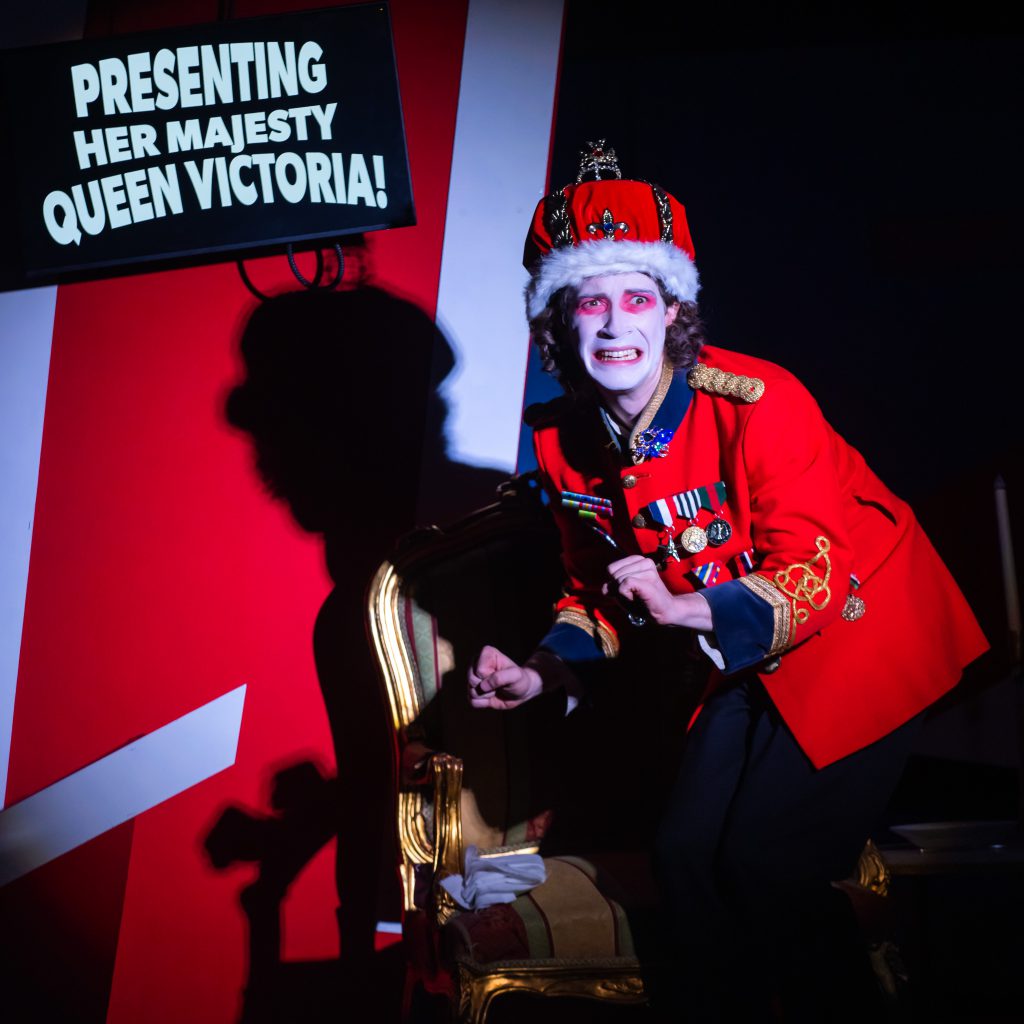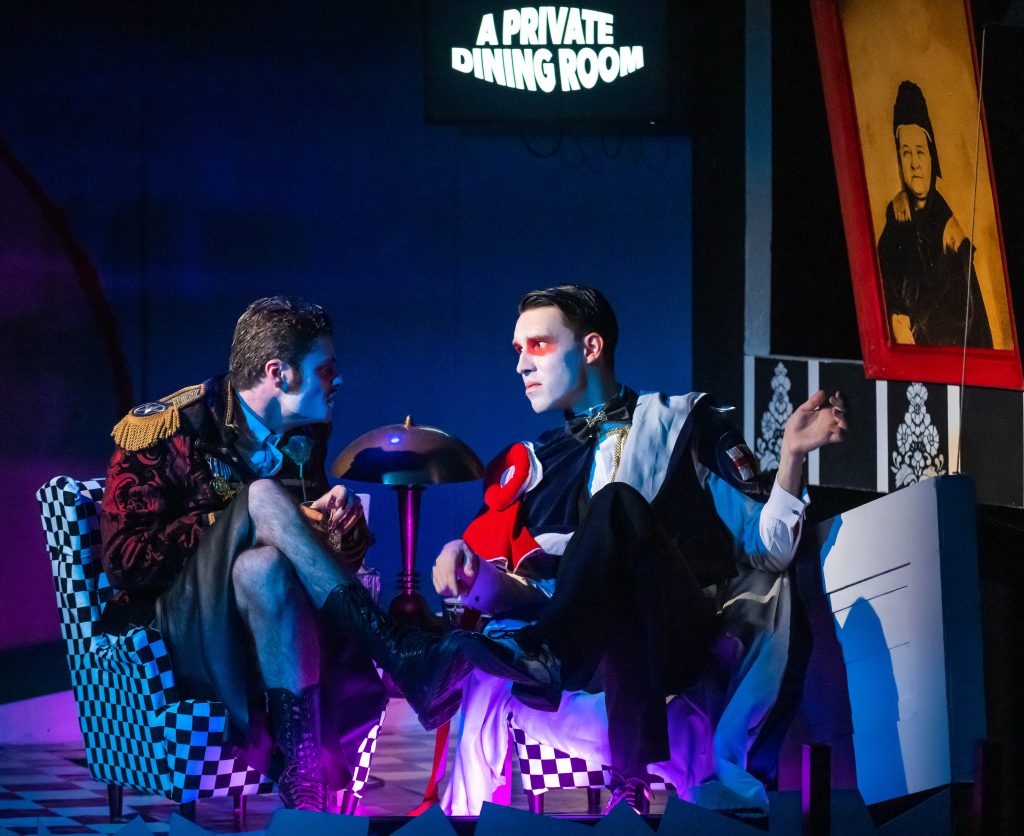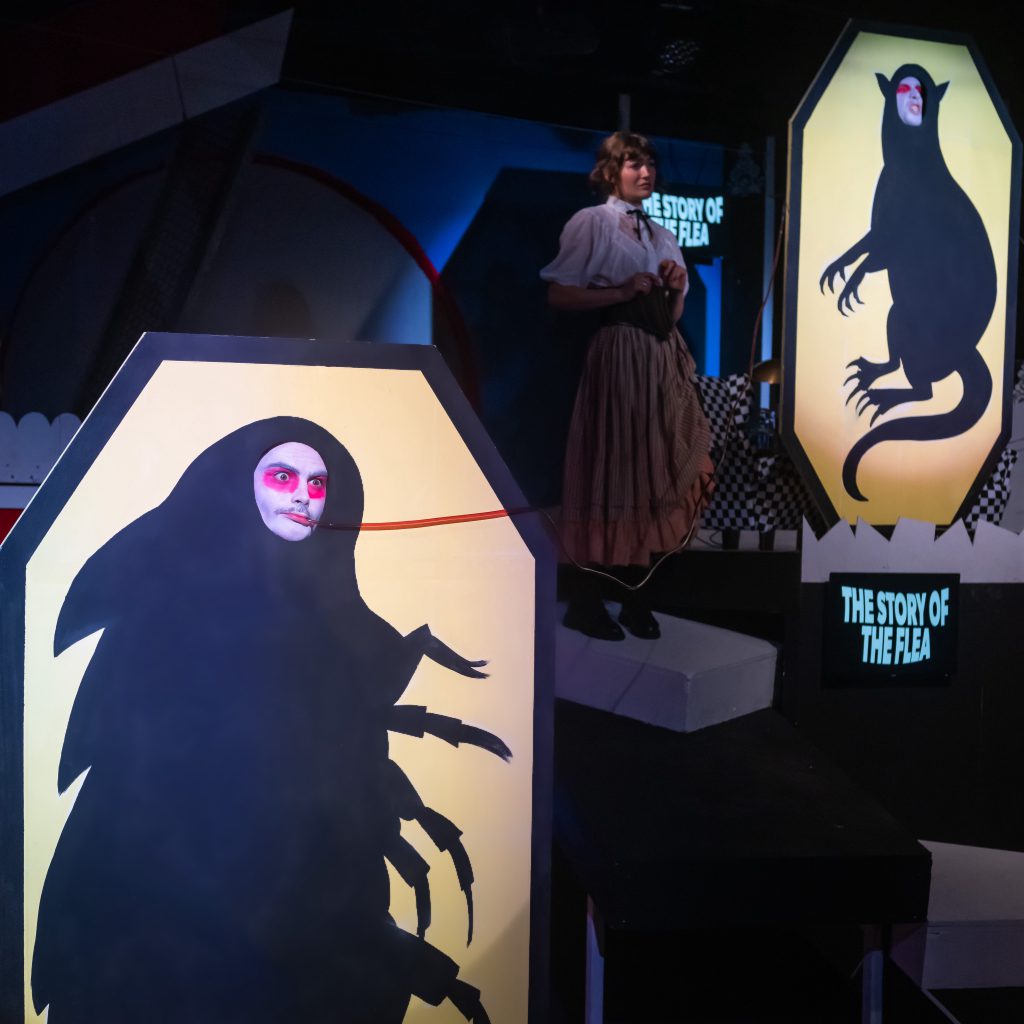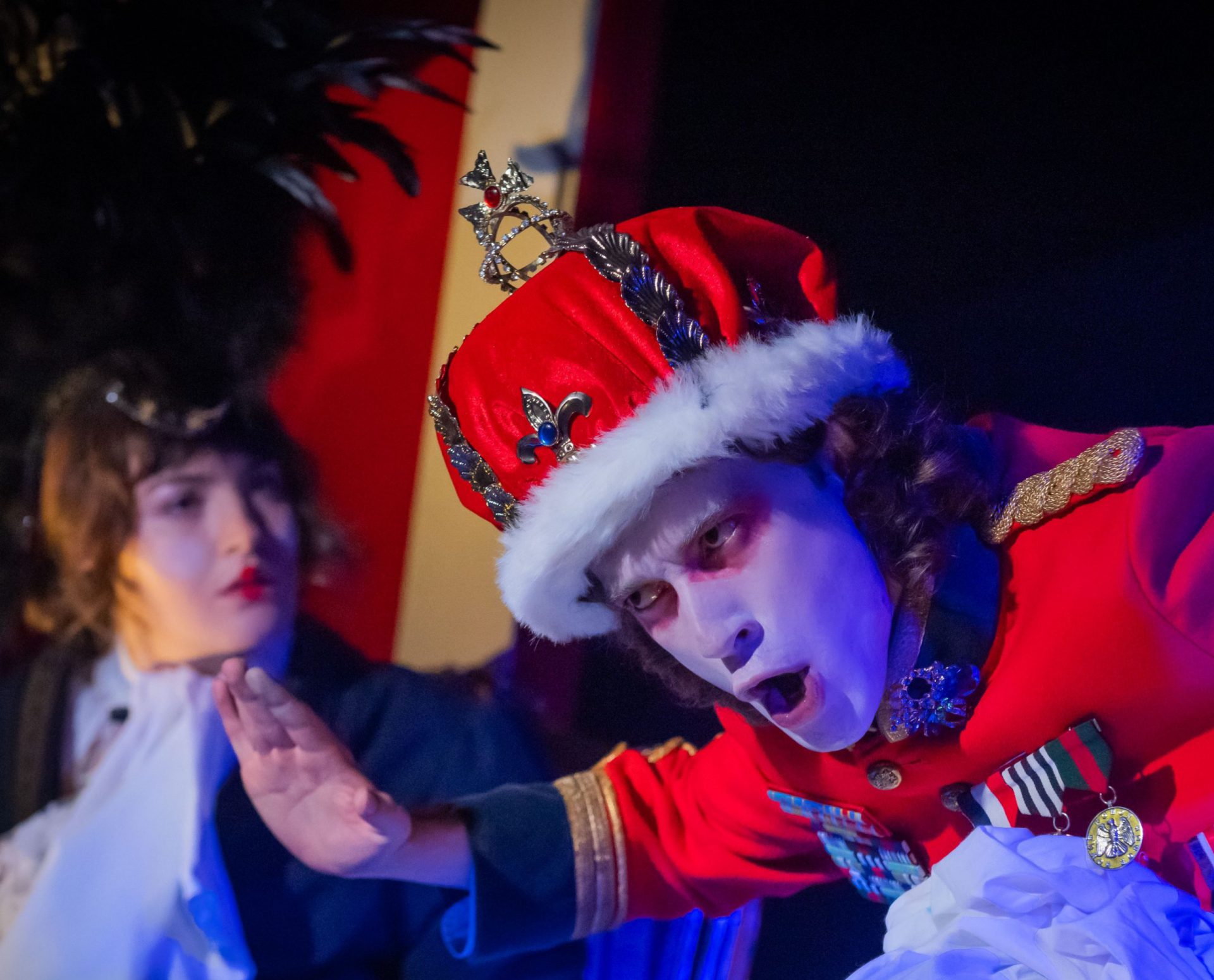A title like The Flea doesn’t necessarily conjure intrigue or excitement, but it’s safe to say that this pantomime cross crime drama is actually one of the most thrilling stage shows this year.
The Flea, based on the work of British playwright James Fritz and staged by visionary young director and designer Patrick Kennedy at Sydney’s New Theatre, does a simple and brilliant job of unfolding its story slowly and satisfyingly.

It starts with Charlie Swinscow (Samuel Ireland), a young telegraph messenger who is discovered to have 14 shillings on his person. Given his low wage, police begin to investigate how this young boy came across these funds. That is where the true story unravels – one of prostitution, deceit, powerful figures, and betrayal – all of which can be traced back to the role of a flea in kicking the story off and leading Charlie to have these 14 shillings. This is a story that won’t be forgotten.
Soon Charlie’s mother Emily (Sofie Divall) and his friend Henry Newlove (James Collins) are embroiled in the drama as inspector Frederick Abberline (Mark Salvestro) and PC Luke Hanks (Jack Elliot Mitchell) try to get to the bottom of it and see how far it goes. Set in 1889 London, this partly fictionalised thriller of the true Cleveland Street Scandal plays up the comedy of the situation but doesn’t avoid the real devastating consequences of the illegality of homosexuality and the vulnerability of the working class at the whims of the upper class. Indeed the very exclusive homosexual brothel in Cleveland Street, Fitzrovia at the centre of the story allegedly had some connections to the real Royal Family themselves. It’s in this second act of the play that the injustices that end up facing the rent boys in Fitzrovia comes to full light.

From a casting point of view, Ireland does well in being the central figure but it is Divall who sweeps the audience away, with her emotive performance and quippy narration grounding the story. Collins is equally brilliant across his roles, particularly the loving brothel attendee Lord Somerset who ultimately faces exile for his role in the saga. Mitchell is one of the weaker performers but still brings something comical in scenes with Salvestro as the headstrong Abberline. Each performer leans into the wit of the play and the drama when needed, and as a result the play soars for much of its (long) runtime.
The set itself is a surrealist dreamscape of stages, doors, small furniture and ramps, reminiscent of Lewis Carroll’s Alice in Wonderland. There are televisions that infrequently show sequences of characters in other locations, which provide some interesting contrast to the scenes onstage and help reduce the lengthy set changes. There is frequent use of music too that makes the play feel more electric and engaging, particularly in between lengthy scenes of dialogue.

With the men face painted like ghosts and dressed in Vivienne Westwood 80’s punk clothing, it veers into the queer and contemporary, with enough whimsy to ground us in the original Victorian-era setting. The parallels between sexuality then and now is easily drawn in many of these sequences. However, unfortunately the play does run long and some scenes can be easily cut (particularly those with Queen Victoria), and there are some questionable accents throughout. Some audiovisual mistakes made the show feel amateurish and distract from the flow of the show but these complaints are relatively minor in comparison to the achievement here.
The Flea is the perfect accompaniment to the Sydney Gay and Lesbian Mardi Gras. The key theme of lack of freedom and this unbelievable true story of homosexuality in an unforgiving world fits in nicely with the festival, particularly as these boys were unfairly punished for a victimless ‘crime’ like homosexuality and how this line of sex work made a criminal of the men that changed their life. It’s thought provoking, true and one of the more dynamic shows of the season.
